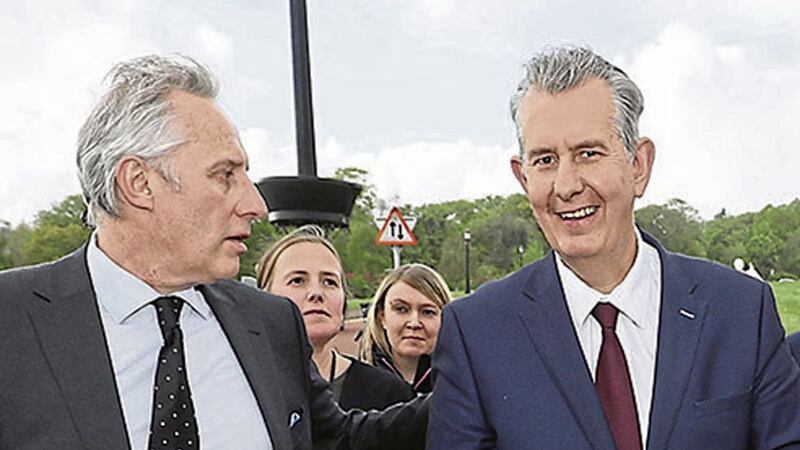The new leaderships of both main unionist parties are prioritising loyalist engagement, with two very different approaches.
Writing in the Irish Times - perhaps not the best place to reach a loyalist audience - UUP leader Doug Beattie says unionism “must reach out to grass-roots loyalism and begin to address its concerns”.
However, Beattie wants paramilitary groups, including the Loyalist Communities Council, to disband “to create the space for loyalism to flourish as the socially liberal and forward-thinking community I know it is.”
He fell out badly with the LCC last month after telling it to “get off the necks of our people”.
DUP leader Edwin Poots says he will engage with any loyalist group, including ‘dissidents’ such as the South East Antrim UDA, to help them transition away from crime and violence. He compares this to John Hume meeting the IRA.
Interviewed by Jamie Bryson’s Unionist Voice website - perhaps not the best place to be taken seriously - Ian Paisley says the DUP leadership is now offering a full “loyalist outreach programme”.
However, the North Antrim MP does not appear to envisage loyalist groups disbanding, so much as continuing to transition towards the DUP.
“There is a willingness to formalise that relationship between loyalism and the DUP leadership,” he says. “There is consideration of a think tank to consider policy positions, which loyalism could play a role in; the leader is very keen to see that process formalised”.
Paisley, who is emerging as Poots’s informal deputy, acknowledges “detachment and frosty relations” between the DUP and the loyalist community. His approach to repairing relations is to double down against the Northern Ireland protocol, demanding it be abolished instead of amended.
Amendment had been the position of the LCC, until it was pushed into a harder stance last week by rising loyalist disquiet. While Beattie wants the LCC disbanded, the DUP is simply bypassing it.
The DUP and UUP might have been expected to pursue Alliance supporters ahead of loyalists as their first priority. Those are the voters they are competing for most directly, according to a liberal-to-conservative conception of the unionist electorate. But that is a parlour game if the loyalist community disengages from unionist politics. There is no point in the UUP winning elections if devolution falls apart, while the DUP will never win an election again if it loses the loyalist vote.
There should also, in theory, be a significant overlap between loyalists and Alliance-voting unionists. As Beattie noted, loyalists support socially liberal policies when given the political space to do so.
It was the 6,000 PUP voters of east Belfast who turfed out Peter Robinson in the 2010 Westminster election, by switching en bloc to Alliance’s Naomi Long.
The UUP then joined the DUP in issuing the infamous City Hall leaflet, which Alliance blames for making it the target of the flag protests.
Beattie has acquiesced to the return of Belfast councillor Jim Rodgers, who lost the UUP whip in 2019 after issuing an election leaflet accusing Alliance of being “closely aligned to the Provisional IRA’s political wing”.
This is an unfortunate echo of the flag protests and shows what a complex puzzle Beattie faces in pursuing votes from loyalists, Alliance and the DUP.
Demanding the disbandment of loyalist groups will appeal to the UUP’s core support of ‘decent people’ and Beattie’s military background gives him the credibility to make this call without being openly derided. But the UDA and UVF are not going to stand down on his orders, or at all without further bribes, crackdowns or a combination of both.
Dismissing the LCC may have been a mistake: it is a single point of political contact and has been keeping a lid on street disorder. Something like it will almost inevitably be needed and nothing better is likely to come along.
Poots may have made a comparable error by making Paisley his outreach officer. Most loyalists will see a Grand Young Duke of York, come to march them up to the top of a hill and leave them there once the DUP accepts the protocol.
A great what-if of recent history is what would have happened had Alliance gone on to become the natural home of loyalist voters - a prospect both main unionist parties clearly found plausible and horrifying.
No matter how impossible it seems today, that prospect cannot have vanished forever.
The UUP and DUP’s loyalist engagement could easily be bad enough to bring it back.









